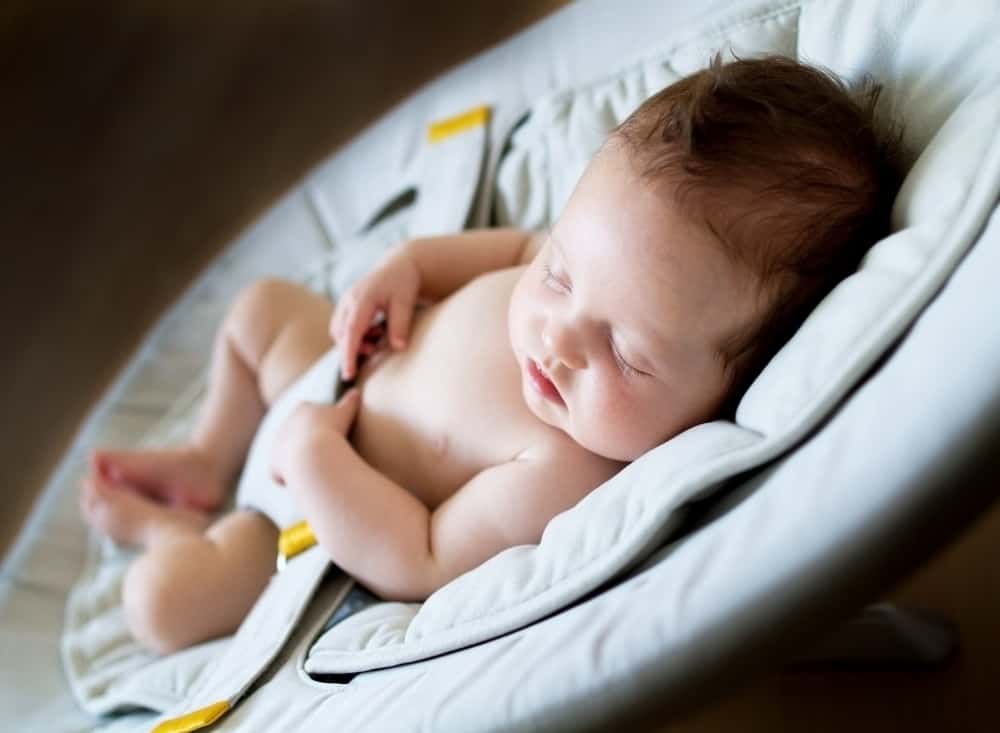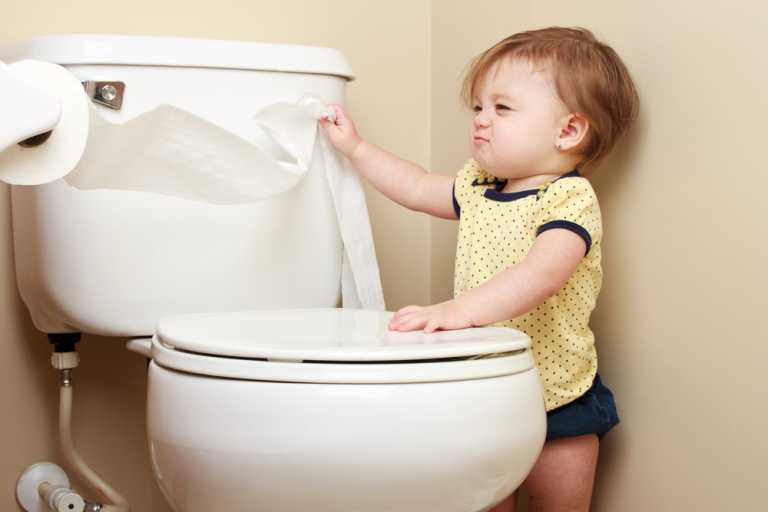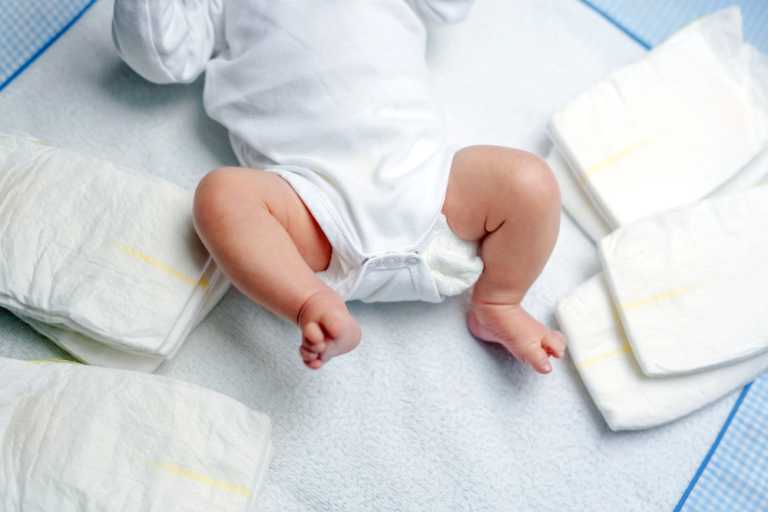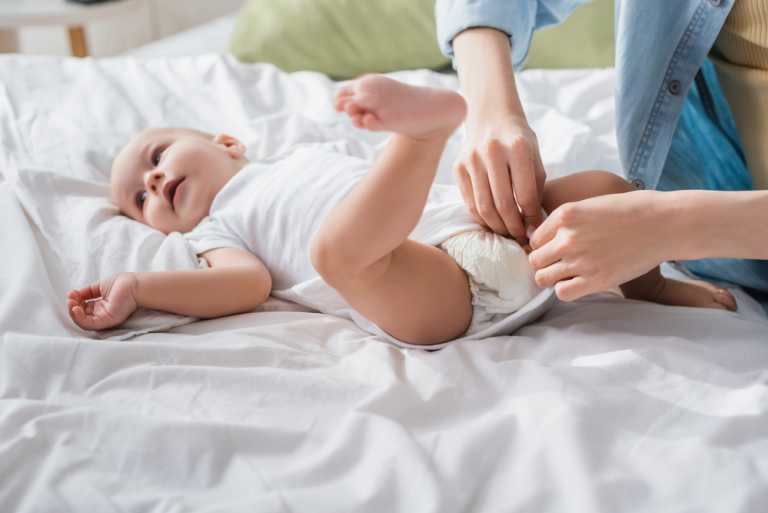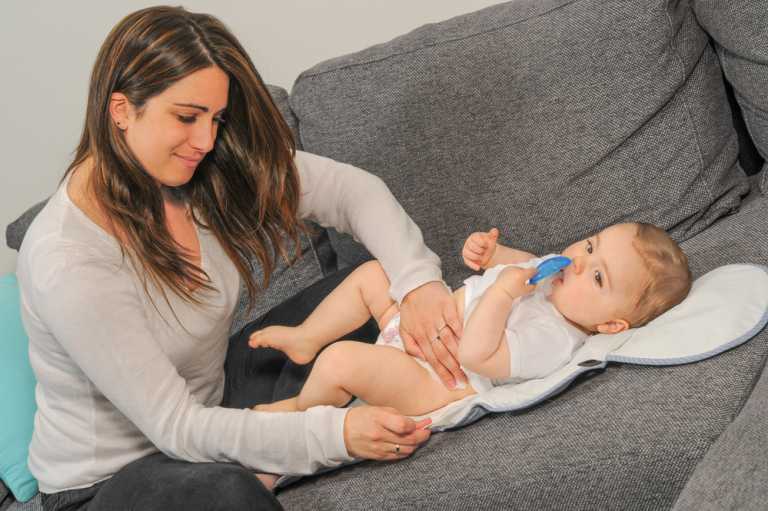The general rule of thumb is that you should change your baby’s diaper every 2–3 hours. But what if your baby is sleeping soundly, you’ve gone to return them to their crib and, oh no! Their diaper is wet, and it could be hours before their next feed. How long can you leave a diaper on overnight?
Good news, unless your baby has pooped or their diaper is so full it’s bulging, it’s OK to let them sleep. You’ve heard the saying, “Never wake a sleeping baby.” It applies here. Just make a mental note to change it the next time they wake.
However, there are a few situations where you should change a wet diaper straight away. Like, if your little one has a diaper rash or open sore. Fortunately, we have some tips to make night changes a breeze.
When to Change Your Baby’s Diaper More Often at Night
Sleep is vital for both your baby’s development and your own cognitive function. So normally, we’d recommend you do everything you can to get as much of it as possible. But there are a few cases where waking your baby for a diaper change is necessary.
Your Baby Has Pooped
Leaving your baby in a slightly wet diaper for a few extra hours is no problem. But you should never leave them in a diaper that’s soiled. Not only is poop more likely to irritate their sensitive skin, but it’ll also be very uncomfortable. Not to mention smelly!
Your Baby Has an Open Sore
Occasionally, babies can develop open sores due to severe diaper rash or fungal or bacterial infection. Although uncomfortable, it usually heals quickly with a prescribed ointment. During treatment, it’s vital to increase the frequency of diaper changes and avoid leaving them wet overnight.
Your Baby Has a Diaper Rash
Leaving a wet diaper on a baby with a diaper rash can inflame the skin and make it worse. For this reason, The American Academy of Dermatology Association recommends changing all dirty diapers as soon as possible. Even if they are just wet.
You’re Using Cloth Diapers
While cloth diapers have many benefits, they are not as absorbent or as effective at wicking moisture away from the skin. This can cause diaper rash or leaks if they aren’t changed overnight. It’s why many cloth diaper parents switch to disposables at nighttime.
Your Baby Is Formula-Fed
The American Academy of Pediatrics has found that babies are more likely to develop diaper rash if they’re formula fed. The reason why has yet to be fully understood. But it could be because formula makes babies’ urine and stools more alkaline. This is not a problem as long as you change their dirty diapers regularly.
Your Baby Is Uncomfortable
If your baby is waking in the night and rejecting a feed, it could be that they’re just requesting a diaper change. Some kids seem perfectly happy with a little wetness, but others will scream the house down until their tush is nice and dry.
8 Tips for Changing Your Baby at Night
Nighttime feeds are warm and cozy and will quickly soothe your baby back to sleep. On the other hand, nighttime diaper changes can be bright and chilly and have your baby thinking it’s morning. Goodbye, precious hours of sleep.
But, there’s good news, it doesn’t have to be this way. Here are our 8 simple tips to make night changes quick and easy.
- Establish a Routine With Baby
Babies thrive on routine. So, if you need to change their diaper at night, do it in the same way, place, and order each time. This will be less shocking, and they’ll be able to drift off more quickly afterward.
- Dress Baby in Clothing That Offers Easy Access
Choose pjs that give you quick and easy access to your baby’s diaper. Zip-up onesies and baby sleep sacks are great for this. Swaddles or clothes with a million poppers will make things trickier.
- Use a Night Light
Keep your baby in nighttime mode by avoiding bright lights. Use a nightlight on the dimmest setting that allows you to see. Never turn on the regular lights unless there’s been a poonami, of course!
- Move Slowly and Calmly
Daytime diaper changes should be fun and distracting for your baby and might involve toys, tickles, or a little song. Nighttime changes should be very different. Move slowly and calmly, and make only soothing or shushing noises.
- Use Nighttime Diapers
Some diapers come in nighttime varieties designed to hold 12 hours’ worth of pee. Consider using these if your baby is leaking in bed or waking due to wetness.
- Make Sure Diapers Are the Correct Size
Diapers that are too small won’t hold enough pee. Diapers that are too large are more prone to leaks. To find the size that will last your baby until morning, weigh them and check that you are using the right size.
- Change Just Before Bedtime
To help your baby’s diaper last as long as possible, ensure they’re completely dry before bed.
- Change Before Nighttime Feedings
Are you avoiding night changes because your baby drifts off during their feed? Try changing their diaper first. If they’re waking so hungry that they’re screaming on the changing table, give half their feed before and the other half after their diaper change.
When to Stop Changing Diapers at Night
Every baby is different, so there’s no set age when they’ll stop needing a nighttime diaper change.
The deciding factor is how much anti-diuretic hormone their body produces. That’s the very clever hormone that stops us from peeing at night. As your baby gets older, they’ll produce more and more until one morning, you’ll start finding dry diapers.
However, if you’re lucky, you can ditch the night changes sooner. Here’s how you’ll know your baby doesn’t need them anymore:
- Your Baby No Longer Feeds During the Night
When your baby quits their night feed, they’ll naturally produce less pee and poop. At this point, your baby might be sleeping through, and you won’t even notice the dry diaper as they’ll do a big pee when they wake.
- Your Baby Stops Pooping at Night
As your baby gets older, they’ll stop pooping overnight. This makes diaper changes less important, so you might want to skip them and see what happens. Perhaps they’ll sleep just fine with a bit of wetness.
- Your Baby’s Diaper Doesn’t Get Very Wet Throughout the Night
In a disposable diaper, small amounts of pee will be quickly absorbed and kept from your baby’s skin. So, if they are waking with a blue wetness indicator, but the diaper isn’t bulging, you may be able to skip the night changes.
- Your Baby Isn’t Woken up by a Full Diaper
If your baby is sleeping through, don’t wake them for a diaper change unless you have a medical reason to do so.
- Your Child Is Potty Trained
The light at the end of the tunnel is, of course, potty training. But, before you get too excited, you should know that most children become night-trained months or years after they stay dry during the day. This is because it’s down to hormones and development rather than behavior.
FAQs
Can You Put 2 Diapers on Your Baby at Night?
There’s an interesting parenting hack to deal with overnight leaks – using 2 diapers at once. However, we wouldn’t recommend it. Although the diapers will catch more pee, it can be uncomfortable and hot and risks diaper rash due to poor circulation.
A better option is to use purpose-made diaper booster pads. Yes, they’re a real thing and invented for this exact situation.
Should You Change Your Baby’s Diaper Before or After Feeding?
Both options have benefits and drawbacks.
Changing your baby’s diaper before a feed means it’ll be easier to get them back to sleep. But they may scream for food while being changed or even pee while feeding and undo your hard work.
Changing their diaper after a feed will keep them dryer for longer, but can make it tricky to get them back down.
A great compromise is to change their diaper mid-feed. If you’re breastfeeding, this could be when you switch breasts. If bottle feeding, try it during the burp break.
How Do I Keep My Baby Dry Overnight?
Unfortunately, young babies do not produce enough Anti-diuretic hormone to keep them dry overnight. There’s nothing you can do about it. It’s just nature.
Fortunately, though, 12-hour diapers and diaper booster pads can help both you and your little one get a few extra hours of sleep.
